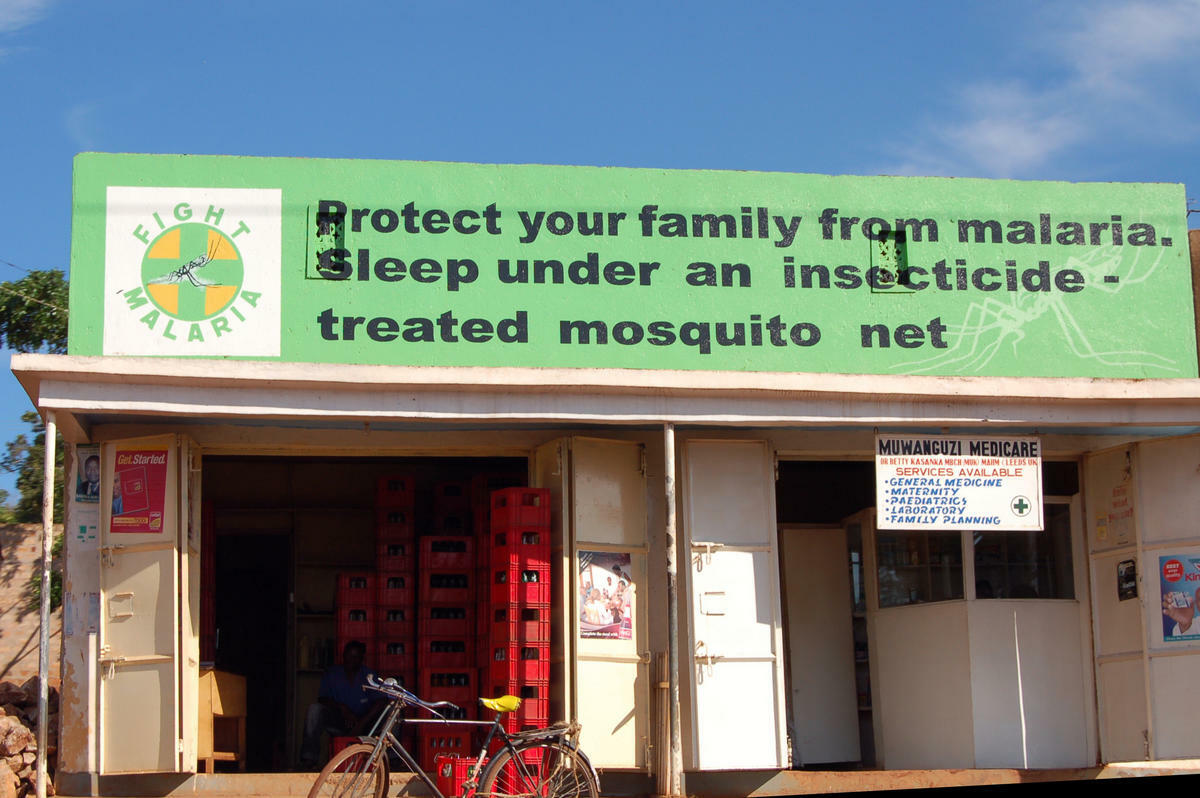
LSTM’s Professor Martin Donnelly has co-led research investigating the impact of adding the synergist piperonyl butoxide (PBO) to long lasting insecticidal nets (LLIN) on markers for malaria, as part of the Ugandan national LLIN distribution. The results have been published in the journal The Lancet and show that adding PBO reduced malaria parasite prevalence for up to 18 months.
Working with colleagues in London, Uganda and the USA, the team developed a cluster randomised trial - named LLINEUP - the biggest of its kind in the world. Epidemiological and entomological studies were carried out across the clusters, which received either standard nets treated with pyrethroid insecticides or nets additionally treated with PBO, at baseline and at 6, 12 and 18 months after distribution of the nets.
Professor Donnelly said: “LLINs have been the foundation of malaria control in sub-Saharan Africa for a number of decades now, with a 40% reduction in incidence of Plasmodium falciparum between 2000 and 2015 mainly attributable to their use. However, the increasing problem of mosquito populations becoming resistant to the pyrethroid class of insecticide used on nets, is a significant problem within Uganda. PBO is a chemical which acts in synergy with insecticides, as we know that it targets the particular enzymes capable of causing resistance, however prior to our study, there was limited evidence of the effectiveness of adding it to treated nets. Our study has shown a significant decrease in malaria parasite infections with dual treated nets and provides the evidence needed to support WHO’s final recommendation on the use of PBO LLINs.”
The study covered around 40% of Uganda with 104 clusters being randomly assigned to receive LLINs treated with PBO or conventional LLINs. A subset of households within each cluster were then randomly selected to take part in the studies, looking at the parasite prevalence in children aged between two and 10 years, anaemia and malaria mosquito densities .
Professor Donnelly concluded: “The importance of vector control tools in the fight against malaria cannot be overstated. With the backdrop of growing insecticide resistance, it is vital that we find new ways to maintain the efficacy of what has been the single most successful protective tool. Our study shows that the addition of another chemical, in this case PBO, can reinvigorate the effectiveness of LLINs, helping us to maintain relevance to malaria control.”
Effect of long-lasting insecticidal nets with and without piperonyl butoxide on malaria indicators in Uganda (LLINEUP): a pragmatic, cluster-randomised trial embedded in a national LLIN distribution campaign. As published in The Lancet: https://doi.org/10.1016/S0140-6736(20)30214-2